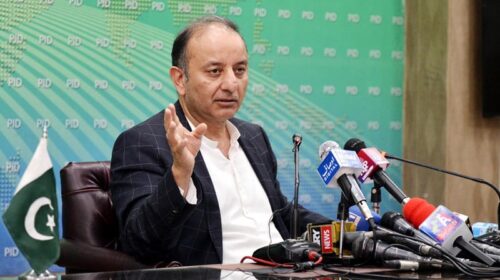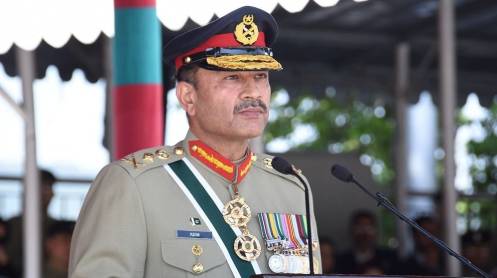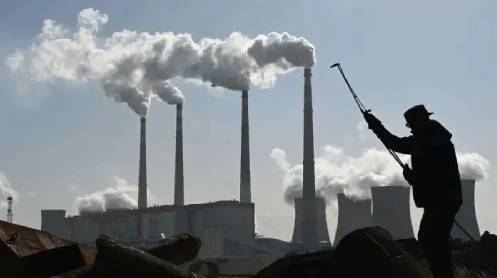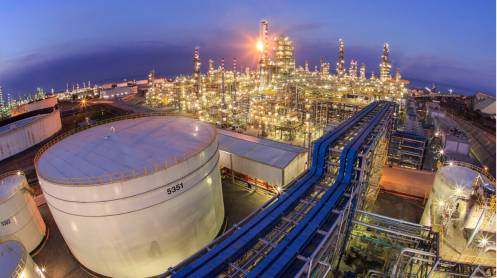Minister of State for Petroleum Musadik Malik on Wednesday said the natural gas shortage would persist this winter like last year, pinning the blame on Imran Khan’s administration for failing to contract the cheapest available liquefied natural gas at the time and no improvement in domestic gas production.
He, however, said that an effective gas load management was being finalised to ensure the supply of liquefied petroleum gas (LPG) cylinders as an alternative fuel.
Speaking at a news conference after attending a meeting chaired by Finance Minister Ishaq Dar, Mr Malik said all the public sector entities in the oil and gas sector had been asked to arrange LPG supplies.
Shahid Khaqan Abbasi, prime minister’s adviser and the chairman of the energy task force, Minister of State for Finance Dr Ayesha Ghous Pasha, and finance and petroleum secretaries also attended the meeting.
Musadik says plan for effective load management in the works; LPG cylinders to be given as an alternative
Informed sources said Mr Abbasi and Mr Malik had sought the finance minister’s support to facilitate foreign exchange requirements for LPG imports.
The sources said the gas curtailments for residential, power sector and industry would be higher than last winter, as two to three LNG cargoes that used to be available last year through spot tenders were unavailable this year.
Therefore, gas companies would be left only with eight to nine cargoes per month in peak winter months under long-term contracts.
During the meeting, Mr Dar was briefed on the gas supply and demand situation in winter. Modalities for an adequate supply of gas for domestic and industrial consumption and reducing the shortfall in the winter season were also discussed, a statement said.
Mr Malik told journalists the government had been floating LNG import tenders, but the commodity was unavailable even at $40 per million British thermal units (mmBtu).
He, however, claimed that as much gas quantity as last year had been arranged for the upcoming winter season.
The state minister hoped to give more relief to domestic consumers in winter than last year and ensure gas supplies to residential consumers at three times — breakfast, lunch and dinner.
Petroleum division sources, however, said it was easier said than done because it required a lot of technical and physical capabilities to build pipeline pressures enough to burn stoves in all areas of urban centres and that too thrice a day.
Mr Malik said efforts were being made to ensure gas supply to power generation plants, industry and to domestic consumers during cooking times. He said the total gas availability with Sui Northern Gas Pipeline Limited (SNGPL) was 680 million cubic feet per day (mmcfd), while domestic consumers’ demand in winter usually went past 900 mmcfd.
To fill the supply-demand gap, the government is working on importing additional LPG this winter and has directed public sector companies to import 20,000 tonnes more than last year.
He said a comprehensive plan would be made public soon to make the country self-sufficient in energy in the next three to four years and innovative steps would be taken to cut gas and electricity prices.
He said the previous PML-N government had promised in 2013 to end power outages by 2018 and it installed 12,000 megawatts of power plants, which he said fulfilled the country’s electricity demand, and put in place two LNG terminals of more than 1,200 mmcfd capacity.
“We will make the country self-reliant in three to four years if given the opportunity to deliver,” he said, adding that the PTI government could not even secure LNG when international firms were offering it at $4 per mmBtu for 10-15 years against the current price, which is ten times higher.





